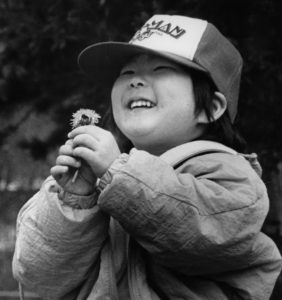COMING OUT – MY STORY
In you, Lord my God,
I put my trust.
I trust in you;
do not let me be put to shame,
nor let my enemies triumph over me.
No one who hopes in you
will ever be put to shame,
but shame will come on those
who are treacherous without cause.
Psalm 25:1-3
Cliff Avenue Church became the training ground for how I would serve God in bigger ways later on. This was my church home in 1993 when I first decided to come out in an effort to reduce the stigma of mental illness.
I had read an article in a mental health newsletter by Dr. John Varsamis who said, “If everyone with a mood disorder would tell a close friend or family member about it, and educate them, there would soon be no more stigma.” That inspired me.
I found the whole stigma thing very ugly, causing people with conditions they couldn’t help to be rejected by society. If there were no stigma, they wouldn’t have to deal with such feelings of shame.
I decided that the best way to beat stigma would be to show that I myself am not ashamed of who I am. I can educate by telling my story. I realized that if I wanted things to be different, it would have to start with me.
I think the most important thing for ourselves to come to terms with is the fact that our disorder does not define who we are as people. We are as worthy as any other segment of society. We need to learn to feel good about who we are.
I sent an article to the Vancouver Sun. Editors wasted no time publishing Sick, but No One Brought me Flowers, together with my name and picture. The article described what it was like to be 19 years old and a patient at Riverview Hospital. The moment I arrived at church the next Sunday, my friends there surrounded me with big hugs. They were proud of me. What wonderful memories those are!
Not long after, I began work on my first full-length book, Riding the Roller Coaster which was published in 1999. That book will require a story of its own. I will tell you about that another time.
Everyone in my world knew. But coming out did not hurt me very much. I didn’t care if there were some people who thought I might be weird. For the most part, I didn’t think they did. I had many friends and felt I had their respect, even if they did know I had a serious mental illness. I felt good about myself and learned to walk with confidence in all areas of my life.
The book gave me credibility and the church was 100 percent behind me when I proposed a depression seminar—one which took place in 2000 and another one in 2001. Members knew about my severe mental illness, yet they trusted me fully to organize these events. The church felt proud to be offering this unique opportunity for people to get help for their emotional needs in a church environment.
These seminars were among the first occasions when mental health was addressed as a topic that Christians and their churches needed to hear about. The speakers at the first seminar were Dr. Roy Bell, lead pastor of First Baptist Church and psychiatrist, Dr. Fred Adrian. Throughout the seminar, they took turns, one talking about the medical side of depression, the other speaking about the spiritual side of things.
The keynote speaker in the next year, was Dr. Phil Long who spoke in the morning. The seminar was well attended. After a beautiful lunch, prepared by the women of the church, the people who had gathered split into two groups with a facilitator for each. One group shared what it was like to live with depression, while the other group provided a space where caregivers could share their experiences.
In a most innocent way, I never considered that coming out would one day result in negative treatment. And so, for some 15 years I openly moved forward, with a joyful spirit doing what God led me to do. I fully sensed the importance of what I was doing, never questioning the wisdom of it. Blind to how the reality of stigma might affect me. Years later when I found myself stigmatized, I wondered at times whether I should have been so open.
Would my life have been easier if I hadn’t come out in the way I did? Probably. I had no idea at first how much suffering it would cause. But if I hadn’t done so, my life would not have been nearly as meaningful as it turned out to be. I was following Jesus and helping people with mental health challenges have better lives. And that was important to me.
Why didn’t I feel ashamed about being so open? Coming out was definitely a sacrifice I made, though it didn’t feel like it. People were calling me courageous, though I didn’t feel courageous. I simply did not feel there was anything to be ashamed of. And this was the message I acted out.
How good it was that I started believing in an almighty Father—loved by him, valued. From the moment I opened my heart to his great love, I found myself sharing that love with the people around me—especially those in my first church home, Cliff Avenue. And my friends there responded well to that love. I was loved back.
marja

Leave a Reply